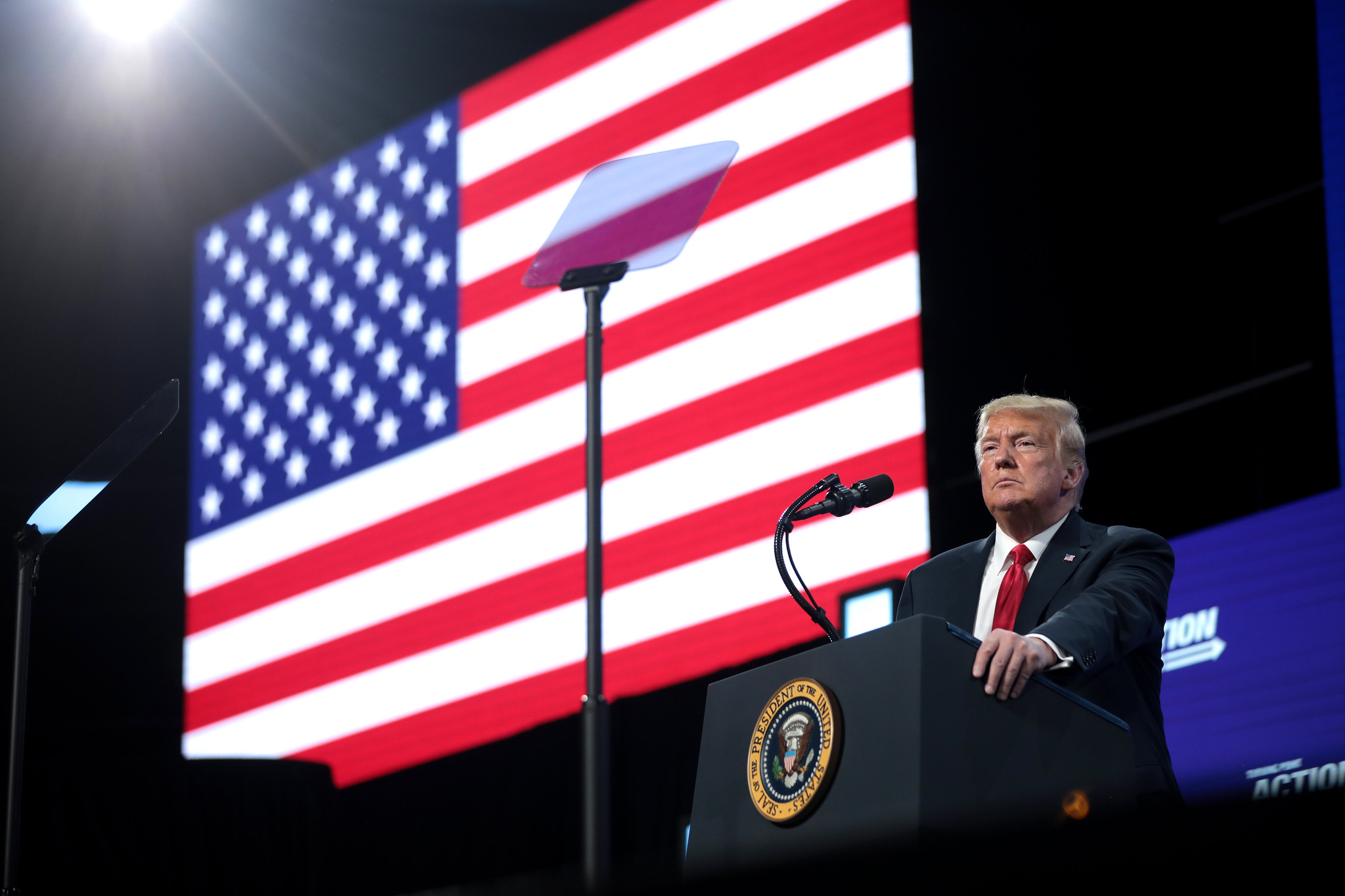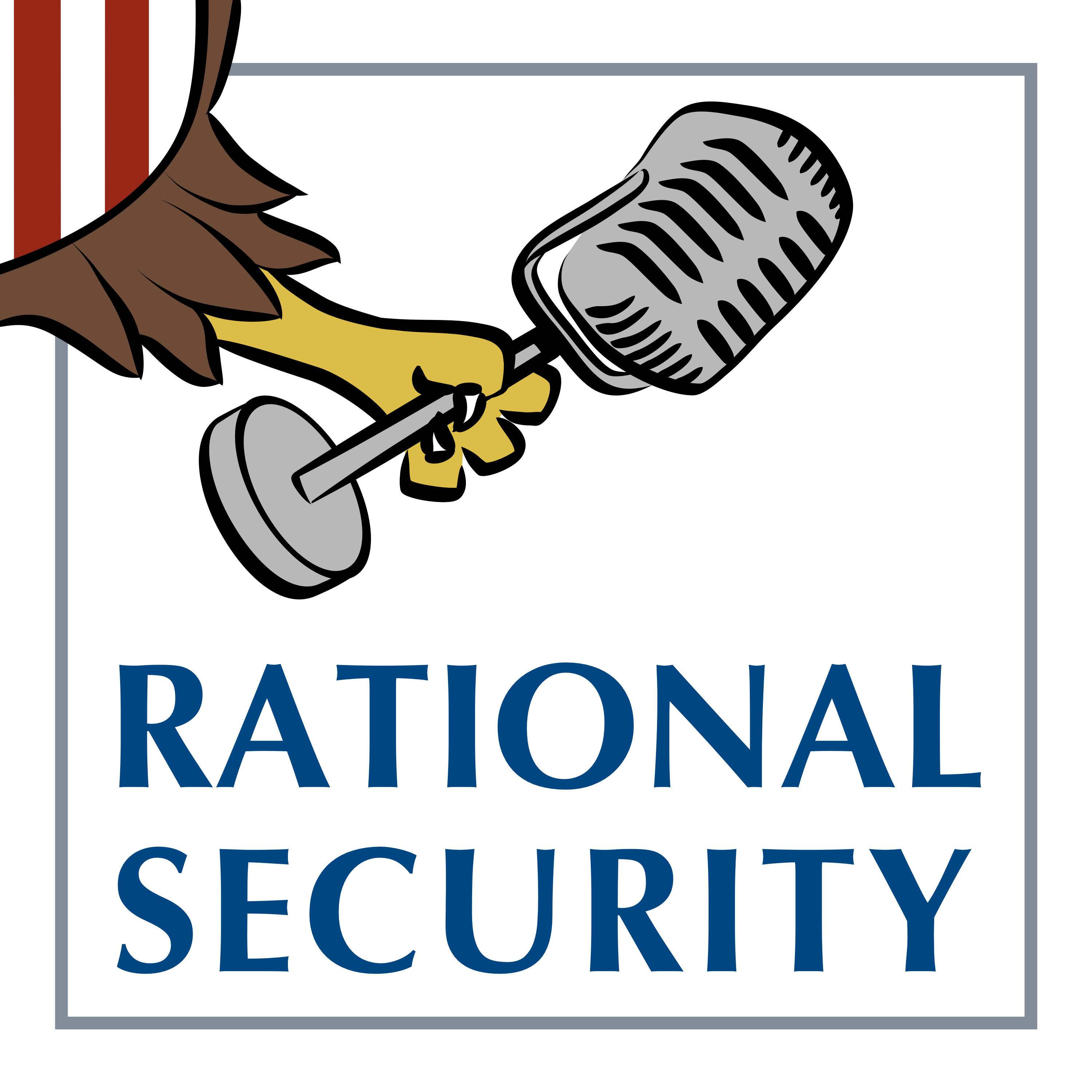How the Eleventh Circuit Might Weigh a CIPA Appeal in United States v. Trump

Published by The Lawfare Institute
in Cooperation With

On July 21, in United States v. Trump, U.S. District Judge Aileen Cannon set a May 2024 trial date and established a schedule for motions pursuant to the Classified Information Procedures Act (CIPA), an obscure yet crucial law that governs the use of classified information in criminal cases. CIPA is designed to prevent the disclosure of sensitive intelligence while allowing defendants to present the evidence they need to mount a vigorous defense. The statute could play a prominent role in the prosecution of former President Donald Trump, who faces 31 counts of willful retention of national defense information, along with six other charges.
Last year, Cannon—a Trump appointee to the U.S. District Court for the Southern District of Florida—sparked criticism, including from editors of Lawfare, when she issued an order that appointed a special master to review documents the FBI confiscated from Mar-a-Lago and temporarily enjoined the government from using the seized materials for investigative purposes. A unanimous panel of the U.S. Court of Appeals for the Eleventh Circuit—which hears appeals from district courts in Florida, Alabama, and Georgia—later vacated the entire order, holding that the lower court lacked jurisdiction to hear the civil lawsuit in which Trump requested appointment of the special master.
Since classified documents are at the heart of the case against Trump, and CIPA entitles the government to a fast-track appeal process, the Eleventh Circuit could review any rulings by Cannon regarding the disclosure of classified evidence. If the government uses the CIPA appeal process, trial would have to be postponed or suspended until an appeal is resolved. This article highlights the Eleventh Circuit case law that will bind Cannon and help decide the outcome of any CIPA appeal. It also describes key district court holdings within the Eleventh Circuit, which serve as persuasive, rather than binding, precedent.
CIPA: A Summary
The Eleventh Circuit has held that “[t]he purpose of [CIPA] is to prevent criminal defendants from ‘graymailing’ the government by threatening to reveal irrelevant but sensitive information during trial.” The statute “has no substantive impact” because it consists only of procedural rules governing how evidence can be presented, and it does not alter preexisting standards regarding the admissibility of evidence. A detailed overview of CIPA, which includes summaries of landmark cases beyond the Eleventh Circuit, can be found here.
Section 2 of CIPA enables a party to request a pretrial conference to discuss “matters relating to classified information that may arise in connection with the prosecution,” including the timing and logistics of discovery. Substantive issues are to be resolved later. The pretrial conference in Trump’s case was held on July 18.
Under Section 3, the government may request a protective order, which “the court shall issue,” to prevent “the disclosure of any classified information” to any criminal defendant. However, Cannon denied the government’s initial Section 3 request for a protective order due to the government’s “lack of meaningful conferral” with defense attorneys. The judge expressed concern that the government “tried conferring on a Friday before filing on a Monday.” The government’s renewed Section 3 motion is due on July 27.
Under Section 4, the government may, “upon a sufficient showing,” delete classified information from documents to be produced to the defense during discovery, substitute a summary of classified documents, or admit facts the classified materials would tend to prove. In Trump’s case, the government’s Section 4 motion and the defense’s challenges to that motion are due on Oct. 10.
Section 5 mandates that a defendant notify the government and the court if they intend to disclose classified information at trial. This notice must include a summary of the classified materials. Trump’s Section 5 notice is required by Nov. 17.
Section 6 requires a court to hold a pretrial hearing (distinct from the pretrial conference) “to make all determinations concerning the use, relevance, or admissibility of classified information that would otherwise be made during the trial or pretrial proceeding.” The hearing must be closed to the public if the government “certifies to the court ... that a public proceeding may result in the disclosure of classified information.” And if the judge chooses to admit classified information, the government may move, pursuant to Section 6(c), to replace it with unclassified substitutes—as long as the defendant retains “substantially the same ability to make his defense.” In Trump’s case, the Section 6 hearing is scheduled for Jan. 16, 2024.
Section 7 allows the government—and only the government—to file a fast-track interlocutory appeal of any district court ruling that would require the disclosure of classified information or penalize the government for failing to reveal such information. This provision distinguishes CIPA cases from most other proceedings. Generally, interlocutory appeals, which challenge “non-final order[s] issued during the course of litigation,” such as evidentiary rulings, are “difficult to obtain” and rare.
Before the start of trial, a Section 7 appeal must be made within 14 days. While there are no other specific deadlines for a pretrial appeal, the circuit court must “expedite[]” the appeal, and the trial may not begin until the appeal is resolved. If the appeal takes place during trial, however, the statute imposes an extremely strict timeline. In this scenario, the district court must adjourn the trial until the appeal is resolved, the court of appeals must hear argument within four business days of the adjournment, and the court of appeals must issue a ruling within four business days of argument.
How Eleventh Circuit Precedent Could Affect the Trump Case
An appeal would likely take place—at the earliest—if Cannon does not fully grant prosecutors’ (presumably forthcoming) Section 4 motion to delete or substitute classified information from the documents the government could produce during discovery. Further down the road, the government might also appeal a Section 6 ruling authorizing disclosure of classified information at trial. In either situation, the government could then use the fast-track interlocutory appeal process in Section 7. Trump, by contrast, would not have a right to an interlocutory appeal under Section 7, since the provision applies only to “appeal[s] by the United States.”
In addition, the Trump case is likely to feature the silent witness rule, a procedure that allows a jury to view classified documents but requires code words (such as “Individual X” or “Country Y”) to be used on the record. The Eleventh Circuit has not ruled on the constitutionality of the rule, which has raised First, Fifth, and Sixth Amendment concerns, and the Trump defense team may seek to challenge its use—though it would not be able to use the CIPA interlocutory appeal process to do so. Lawfare recently published a primer on the silent witness rule and released a podcast on the subject featuring former CIA lawyer Brian Greer.
When applying CIPA procedures, courts determine the admissibility of evidence using non-CIPA substantive law.
Although the Trump case involves classified evidence, the evidentiary standards will not differ from a typical criminal case. In United States v. Anderson, the Eleventh Circuit held “the legislative history is clear that Congress did not intend to alter the existing standards for determining relevancy and admissibility of evidence,” which are set out in the Federal Rules of Evidence. In the words of United States v. Collins, a Southern District of Florida decision, CIPA does not “preclude presentation of the defendant’s story to the jury” but rather “merely allows some restriction on the manner in which the story will be told.” This means that courts apply non-CIPA case law to determine when evidence can be admitted, and CIPA does not require that “simply because defense evidence may consist of classified information it shall be ... excluded.”
If a judge rules that classified information is admissible, “it becomes the government’s task to propose an alternative way of conveying the information to the jury that is less damaging to national security.” Under Section 6 of CIPA, the court must allow the government’s substitution if the court “finds that the statement or summary will provide the defendant with substantially the same ability to make his defense as would disclosure of the specific classified information.”
The Eleventh Circuit will be deferential to Cannon’s evidentiary rulings but not to her legal interpretations of CIPA itself.
Trial courts are vested with broad discretion to rule on the relevance and admissibility of evidence, and this is no different in the CIPA context. In the Eleventh Circuit, CIPA evidentiary appeals are examined using an abuse of discretion review standard. The Fourth Circuit, which reviews many cases involving classified documents, uses the same standard and has stated that “[evidentiary] decisions may only be overturned under the most extraordinary circumstances.”
In the Trump case, if Cannon rules that classified information is admissible under the Federal Rules of Evidence—which are undisturbed by CIPA—the Eleventh Circuit may be less likely, given the standard of review, to reverse her ruling. And the Eleventh Circuit will likely apply the same deferential standard of review to Cannon’s rulings regarding deletions or substitutions under Section 6(c). The Fourth and Ninth Circuits have held that 6(c) rulings are evidentiary decisions that merit abuse of discretion review, although the Eleventh Circuit has not explicitly held the same.
However, any appeals regarding the interpretation of CIPA itself would be reviewed by the Eleventh Circuit de novo, meaning deference would not be given to the trial court’s decision. While it’s less clear which interpretive issues (if any) would present themselves on appeal in the Trump case, United States v. Campa offers an example of de novo review under CIPA. In that case, the Eleventh Circuit applied de novo review when it affirmed a district court decision to (a) hold a Section 4 hearing ex parte and (b) maintain the hearing records under seal after trial.
A defendant must provide written notice detailing the specific pieces of classified information they intend to use at trial.
If Trump seeks to use any classified documents in his defense, he must give the court and prosecutors advance notice—and be specific. In United States v. Badia, a defendant was precluded from raising a defense of CIA involvement in alleged firearms manufacturing—which would have required classified information—because he failed to provide written notice pursuant to Section 5(a) of CIPA. The Eleventh Circuit affirmed the district court’s enforcement of the written notice requirement even though the defendant argued the government already had actual notice of the defense. And in an Eleventh Circuit decision preceding the district court decision in Collins, a defendant’s Section 5(a) notice of classified evidence he intended to use was insufficiently particular where he threatened to reveal “everything he or his witnesses may know” without providing specifics.
Courts within the Eleventh Circuit have permitted defendants to introduce classified evidence—subject to the government’s right to request substitution for unclassified information—where the evidence may have negated allegations of the defendant’s intent.
The Eleventh Circuit held, in United States v. Juan, that classified evidence was admissible because it was material to the defendant’s argument that he “reasonably thought ... under the peculiar circumstances of this case” he was committing drug offenses “in cooperation with the U.S. Government” and therefore lacked criminal intent. The court made this ruling in the context of CIPA procedures but applied non-CIPA substantive standards. And in the aircraft piracy case United States v. Lopez-Lima, a district court allowed a defendant to introduce classified evidence that could have supported his argument that he lacked wrongful intent because he thought the CIA sanctioned a hijacking. The court—using CIPA procedure and non-CIPA substantive law—ruled that this information was relevant to the defendant’s affirmative defense that he relied on the government’s “actual authority,” as well as the separate defense that the government involvement “negate[d] his wrongful intent.” This defense was cognizable, the court concluded, because the alleged offense took place before CIA was “precluded explicitly,” by a 1981 executive order, from authorizing statutory violations.
While it is difficult to imagine how a government authority-related defense could be viable for Trump, since the charges against him stem from alleged post-presidency conduct, these cases illustrate at least one way that a defendant can attempt to use classified information to negate the intent element of criminal charges. And the question of Trump’s intent will likely be hotly contested. To convict the former president, the government will need to demonstrate that the former president’s alleged acts were intentional.
But the Eleventh Circuit has rejected defendants’ efforts to introduce classified evidence it deemed immaterial.
The Anderson court affirmed a district court ruling that defendants could not introduce classified evidence to support their defense that they were acting under the apparent authority of a CIA agent while conspiring to engage in illegal arms transfers. The court held that the evidence—even if established to be true—would have been irrelevant because the claim did not constitute a cognizable defense; the CIA had no power to authorize statutory violations.
And the Eleventh Circuit held that a trial court properly prevented Manuel Noriega from presenting evidence about the purposes for which the U.S. government paid him while he was the ruler of Panama, as the evidence was irrelevant to drug trafficking charges against him and was likely to confuse the jury. The district court ruling, which the court of appeals affirmed, did permit Noriega to present evidence of the amount of money he allegedly received from the U.S., which he could have used to rebut the government’s argument that he had unexplained wealth. These cases—which applied CIPA procedure and non-CIPA admissibility standards—suggest that, regardless of how Cannon rules, the Eleventh Circuit will not allow Trump to muddy the waters for the jury by introducing distracting or confusing classified evidence immaterial to his defense.
As United States v. Trump proceeds, CIPA and the Eleventh Circuit’s case law can help us anticipate how events will unfold—at both the district court and appellate levels. If Cannon, who is bound by the Eleventh Circuit’s past precedent, sides with Trump under CIPA Section 4 or Section 6, the government may immediately appeal the ruling under Section 7. If the disputed ruling is simply evidentiary, the Eleventh Circuit will take a deferential approach, but the appeals court will not defer when considering the validity of Cannon’s legal interpretations. While it is impossible to predict how exactly the Trump case will play out—and which precedents will be decisive—CIPA will likely remain at the forefront.






